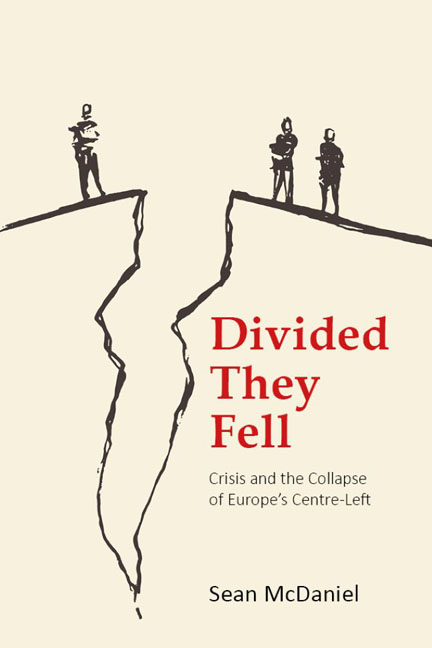Book contents
- Frontmatter
- Contents
- List of abbreviations
- Acknowledgements
- Introduction
- 1 Neoliberal convergence and the politics of austerity: is there still space for the centre-left?
- 2 Struggling to win: centre-left electoral decline and the strategic dilemma of the Third Way
- 3 Developing a strategy: the internal dynamics of the centre-left’s response to the crisis of neoliberalism
- 4 Delivering the strategy: how the centre-left sought to communicate a response to the crisis of neoliberalism
- 5 Stagnation, failure and fragmentation: the rise of the radical left
- 6 Post-pandemic politics: how are the centre-left rebuilding?
- Conclusion
- Appendix: interviewees and interview locations
- Notes
- References
- Index
Conclusion
Published online by Cambridge University Press: 23 January 2024
- Frontmatter
- Contents
- List of abbreviations
- Acknowledgements
- Introduction
- 1 Neoliberal convergence and the politics of austerity: is there still space for the centre-left?
- 2 Struggling to win: centre-left electoral decline and the strategic dilemma of the Third Way
- 3 Developing a strategy: the internal dynamics of the centre-left’s response to the crisis of neoliberalism
- 4 Delivering the strategy: how the centre-left sought to communicate a response to the crisis of neoliberalism
- 5 Stagnation, failure and fragmentation: the rise of the radical left
- 6 Post-pandemic politics: how are the centre-left rebuilding?
- Conclusion
- Appendix: interviewees and interview locations
- Notes
- References
- Index
Summary
This book opened by reflecting upon a puzzle. The GFC – as a crisis of the extant neoliberal model – appeared to present an opportunity for the political pendulum to swing back towards the left. Yet, more than a decade later, it is clear that Europe's centre-left parties failed to seize that opportunity. Not only have they failed to assert themselves electorally, programmatically and ideologically, but the GFC and attendant post-crisis politics of austerity have resulted in a crisis of centre-left party identity. Such parties were unable, and at times seemingly unwilling, to develop a progressive response to the crisis of neoliberalism or an alternative to the dominant austerity strategy in Europe. These failings created space the rise of radical left and other populist alternative parties and movements in both the UK and France.
Today, the future of the centre-left is more finely balanced than it has ever been. For some centre-left parties, the GFC was deadly. PASOK were wiped out by the insurgent left-wing SYRIZA, while the French PS clung on to a handful of seats in its strongholds. Yet, as we saw in Chapter 6, centre-left parties around Europe are in some respects rebuilding and, in a few cases, regaining power. The current conjuncture, marked by political volatility, the climate crisis and Covid-19, represents another potential opportunity for the centre-left. There is a strong case to be made for the need for a progressive economic response to tackle the climate issue while also addressing longstanding inequalities that the pandemic has both shone a light on and exacerbated. The question is: are centre-left parties capable of advancing that progressive cause?
Divided They Fell provides us with several new ways of appreciating this question. The book speaks to a number of existing literatures on the political economy of European social democracy, democratic representation and theories of ideational change. Although focused on the two cases of Labour and the PS, the analysis offers us some important findings at three levels of abstraction that have a wider applicability. At the macro level, it offers insight into the relationship between the conditions of contemporary capitalism and modern centre-left politics.
- Type
- Chapter
- Information
- Divided They FellCrisis and the Collapse of Europe's Centre-Left, pp. 147 - 154Publisher: Agenda PublishingPrint publication year: 2023

